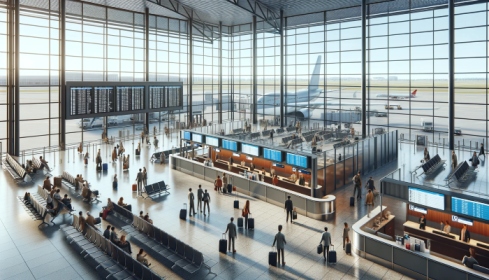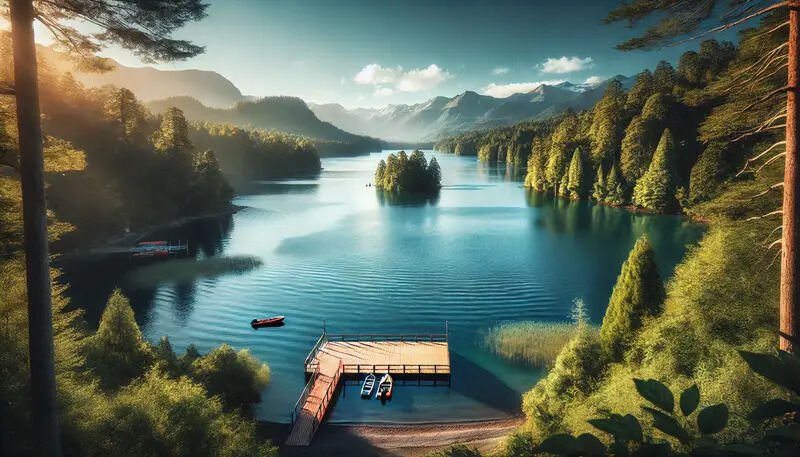Monday, September 9, 2024 On September 5, 2024, in the port of Rotterdam, AIDA Cruises made a significant milestone by refueling its AIDAprima cruise ship with 100% renewable Bio Marine Fuel (BMF100) for the first time. This marked the launch of a pilot project aimed at assessing the fuel’s performance during regular operations, with an eye on its future potential. The biofuel, entirely derived from advanced feedstocks such as organic waste or residues, was supplied by VARO Energy.
It is projected to lower greenhouse gas emissions by at least 85% compared to traditional fossil fuels. “We are focused on identifying advanced fuels and technologies we can use to reduce greenhouse gas emissions. In our search for the fuel mix of the future, we have been gathering valuable experience through trials using various biofuels since 2022, and we continue to closely cooperate with experts from industry and science to develop new approaches to continuously reduce emissions,” explains AIDA Cruises President Felix Eichhorn .

“In order to achieve a sustainable future, we need a growing supply of biofuels and other low-carbon alternative fuels – available globally at scale and at marketable prices,” Eichhorn continues. Following its refueling in Rotterdam, AIDAprima will trial the new biofuel during its scheduled voyages from Hamburg, navigating through Norway’s scenic fjords. The results from these operational tests will play a key role in assessing the biofuel’s potential for broader implementation across the entire AIDA fleet.
“Since 2019 VARO has successfully developed, blended, and supplied a diverse range of biofuels for marine bunkering. Our products include B30/B100, HVO (up to 100 percent) and various low FAME biofuel blends. We are excited to supply AIDAprima, working with AIDA and Carnival Corporation & plc, the world’s largest cruise company.
This operation, taking place near our Rotterdam office, reflects our ongoing efforts to support marine customers in their decarbonization journey as the industry adapts to new regulations. We look forward to continuing our work with AIDA and expanding our biofuel offerings in the ARA region and beyond,” commented Sacha Konan , Country President / VP Commercial Benelux & France at VARO Energy. AIDA Cruises Committed to Advancing Sustainable Fuels and Technologies AIDA Cruises places a strong emphasis on utilizing second-generation biofuels, which are exclusively produced from organic waste and residual materials.
Compared to other technological innovations, biofuels offer a straightforward solution for regular ship operations as they can be used without significant modifications to existing engine and tank systems. Depending on the biofuel used, these fuels can reduce greenhouse gas emissions by at least 85% when compared to conventional fossil fuels. As part of its long-term decarbonization strategy, AIDA Cruises has been investing in sustainable technologies for many years.
Along with testing biofuels, the company is already using liquefied natural gas (LNG) to achieve immediate reductions in greenhouse gas emissions, in the absence of zero-emission maritime fuels. Additionally, AIDA is expanding its use of alternative energy sources such as shore power for docked ships and onboard batteries that store energy to minimize fuel consumption during peak engine operation. The cruise line is also working closely with various partners to explore renewable and synthetic fuel solutions.
AIDA Cruises was among the first in the Carnival Corporation & plc family to conduct biofuel trials and one of the pioneers globally in testing biofuels on active cruise ships. These tests support Carnival Corporation’s larger sustainability goals, including its aim to reach net-zero emissions from ship operations by 2050. Collaboration with VARO Energy on Biofuel Testing For this biofuel test, AIDA Cruises is partnering with VARO Energy, a leader in low-carbon marine fuels.
VARO’s innovative blending techniques have resulted in a high-quality biofuel that can be seamlessly integrated into existing marine fuel systems without affecting engine performance. The biofuel is derived entirely from waste and residue streams that are unsuitable for food or animal feed, making it a sustainable drop-in alternative to traditional marine fuels..



















